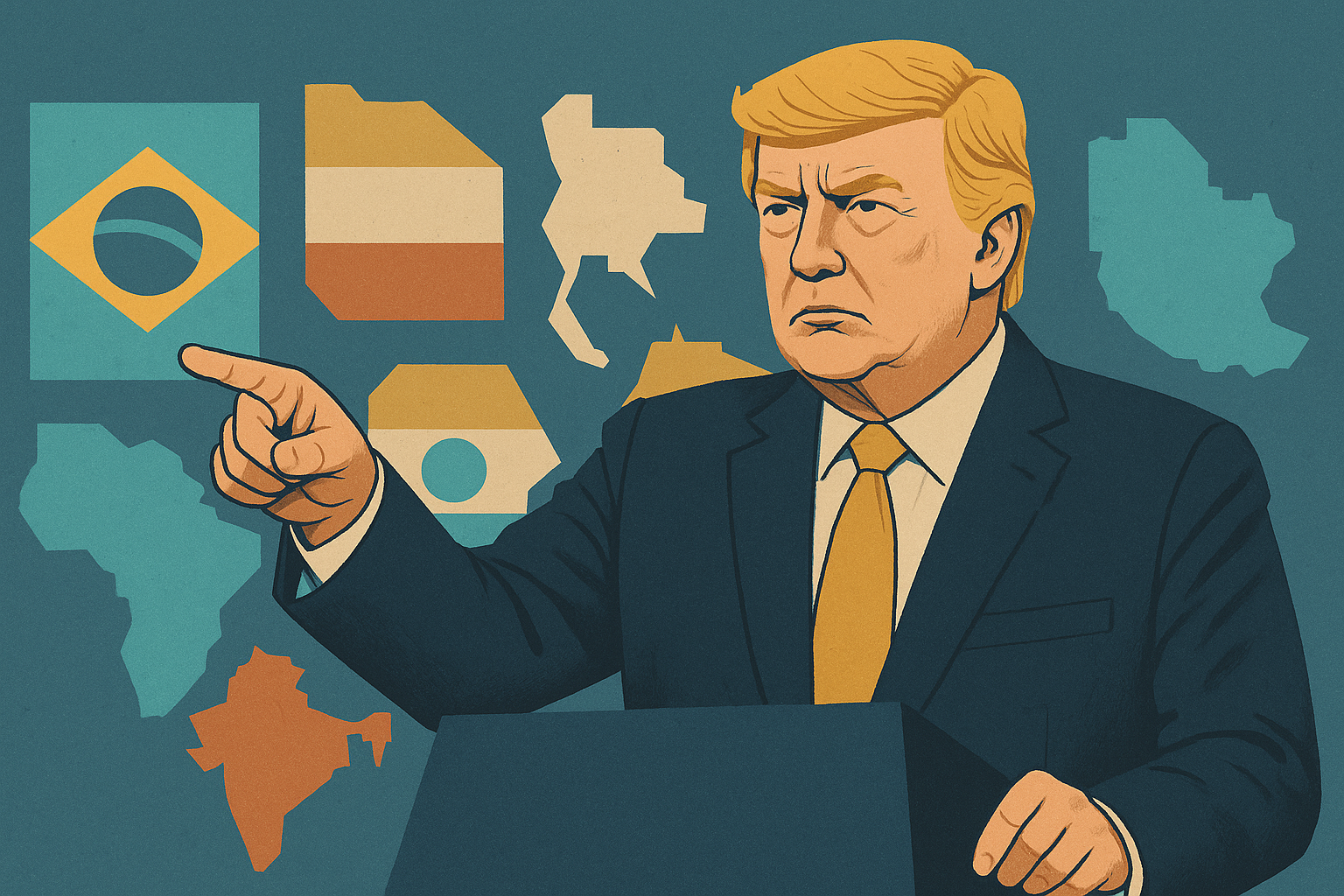US President Donald Trump has threatened to impose an additional 10% tariff on any country that supports the BRICS alliance and its policies deemed counter to American interests. In a post on his Truth Social platform on Sunday, Trump stated, “Any country aligning themselves with the Anti-American policies of BRICS, will be charged an ADDITIONAL 10% tariff. There will be no exceptions to this policy.”
This announcement coincides with the BRICS summit in Rio de Janeiro, where leaders have reiterated their calls for reforms in global financial institutions, including the International Monetary Fund (IMF), and advocated for reduced reliance on the US dollar. Finance ministers from the bloc have jointly criticised global tariffs, such as those previously implemented by the US under Trump, as detrimental to international economic stability.
The BRICS bloc, originally comprising Brazil, Russia, India, China, and South Africa, expanded in 2024 to include Egypt, Ethiopia, Indonesia, Iran, Saudi Arabia, and the United Arab Emirates. Collectively, the group now represents more than half of the global population and has become increasingly vocal in its criticism of US-led economic dominance.
In a joint statement issued on Sunday, BRICS ministers condemned recent military strikes on Iran, including those carried out by the US and Israel in June, labelling them a violation of international law. They also criticised “unilateral protectionist measures” as disruptive to the global economy.
Trump, who has consistently criticised BRICS for attempting to challenge Western influence, has made economic nationalism and trade tariffs a central aspect of his foreign policy. He had previously threatened 100% tariffs on BRICS countries if they pursued plans to create a shared currency to rival the dollar.
Tensions have escalated following Trump’s recent remarks and the bloc’s push for a “multipolar” world order. Analysts caution that his latest tariff threats could exacerbate global trade rifts and place key US allies in difficult positions as they navigate relations with both Washington and emerging powers like China and India.
While Indian Prime Minister Narendra Modi and South African President Cyril Ramaphosa attended the Rio summit in person, Chinese President Xi Jinping was notably absent, with Premier Li Qiang representing him. Russian President Vladimir Putin participated via video link due to an International Criminal Court arrest warrant against him for alleged war crimes in Ukraine.
With geopolitical tensions and trade disputes intensifying, Trump’s warning could set the stage for further economic confrontation between the US and BRICS members, many of whom play crucial roles in global energy, manufacturing, and finance.




